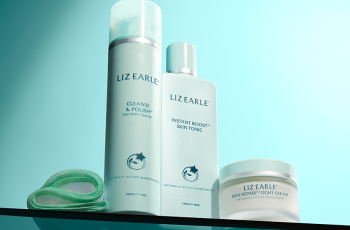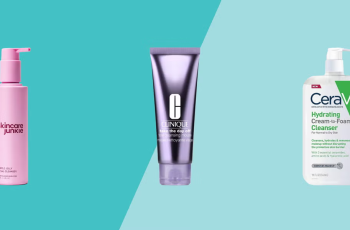
? How to Get Rid of Spots on Your Face Effectively: A Comprehensive Guide to Clearer Skin
There’s nothing more frustrating than spotting a blemish on your face, especially when you’ve been diligently sticking to a skincare routine filled with powerful ingredients and well-researched products.
Even with a consistent regimen, breakouts still find their way onto our skin, but don’t panic—this is not a time to hide or feel defeated.
The truth is, acne happens to everyone, and learning how to treat it quickly and properly can make a world of difference in preventing long-term damage.
In this guide, we’ll walk you through the most effective strategies to eliminate facial spots and understand the common causes behind those pesky breakouts.
✨ How to Get Rid of Acne Quickly Without Damaging Your Skin
When faced with acne, many people look for instant solutions, but not all quick fixes are skin-friendly or long-lasting.
Some treatments promise overnight results, but if not used carefully, they can leave your skin irritated, inflamed, or even scarred permanently.
The key is finding methods that are both fast-acting and gentle enough to preserve your skin’s health and natural barrier.
Below are safe, dermatologist-approved strategies to help you reduce acne quickly while avoiding any long-term consequences.
? Keep Your Hands Off Your Face
Your hands are home to thousands of bacteria and invisible dirt particles, which can easily transfer to your face when you touch it.
Constant touching introduces bacteria into your pores, which may lead to clogged pores, inflammation, blackheads, and even painful cystic acne.
If you find it hard to avoid touching your face during the day, make sure you wash your hands regularly or carry hand sanitizer for emergency use.
It’s also important to resist the urge to pick, squeeze, or pop pimples, no matter how tempting they might look in front of a mirror.
Picking often results in skin trauma, which can lead to post-inflammatory hyperpigmentation, scarring, and delayed healing of the blemish.
? Apply Ice for Quick Inflammation Relief
If you notice a red, swollen, or painful pimple forming, ice can be your secret weapon to reduce inflammation and discomfort.
Wrap a clean ice cube in a soft cloth and gently press it against the blemish for 2 to 3 minutes, letting the cold minimize swelling and redness.
Repeat the process several times throughout the day to soothe the skin and calm the spot without aggravating it further.
Icing not only helps with inflammation but also provides temporary pain relief for deeper cystic pimples.
? Avoid Heavy Makeup When Breaking Out
Full-coverage foundation can seem like the best solution for covering up breakouts, but it may actually make things worse by clogging your pores.
Thick layers of foundation and powder often look cakey, highlight texture, and trap oils beneath the surface, leading to more pronounced blemishes.
Instead, opt for lightweight, non-comedogenic formulas like tinted moisturizers or CC creams that even out skin tone without suffocating your skin.
Use a clean concealer brush to spot-treat acne with a fuller-coverage concealer, layering only where needed to prevent irritation and overloading the skin.
? Cleanse Gently and Avoid Over-Exfoliation
While it’s important to cleanse your face daily, aggressive scrubbing or using strong exfoliants can do more harm than good.
Cleansers with salicylic acid or benzoyl peroxide can help dissolve oil and fight bacteria, but balance is key to avoid stripping your skin.
Harsh exfoliants and astringent toners can dry out the skin, triggering an overproduction of oil to compensate for the moisture loss.
This excess sebum can clog your pores even more, worsening your breakouts and prolonging healing time.
Instead, stick with a gentle cleanser and incorporate chemical exfoliants, like AHAs or BHAs, only 2–3 times per week depending on your skin’s needs.
? Causes of Acne in Adults You Should Know About
Many believe acne only affects teens, but adults in their 20s, 30s, and even 40s can experience frequent breakouts for a number of reasons.
Hormonal fluctuations due to menstruation, pregnancy, or menopause often trigger excessive oil production and skin congestion in adults.
High levels of androgens can lead to clogged pores and an increase in acne-causing bacteria on the skin.
Another key factor is chronic stress, which stimulates cortisol production and throws off hormonal balance, creating the perfect storm for breakouts.
Lifestyle habits like poor sleep, an unbalanced diet, or lack of exercise can all contribute to more frequent or stubborn adult acne.
Environmental factors such as pollution, humidity, and sweat can further aggravate the skin, especially in warmer climates or after workouts.
Dead skin cell buildup is another culprit, especially in drier skin types where exfoliation is neglected or done too aggressively.
? How to Treat Subcutaneous Acne Overnight
Subcutaneous pimples, also known as blind pimples, form deep under the skin and don’t always come to a head like surface breakouts.
To treat them overnight, start with a double cleanse to remove makeup, sunscreen, and oil residue completely from your face.
Follow up with a targeted serum containing salicylic acid or niacinamide to penetrate pores and reduce inflammation from the inside out.
Incorporating retinol into your nighttime routine can help increase cell turnover and shrink acne over time, but use it cautiously and avoid overuse.
Apply a thin layer of a spot treatment—tea tree oil, sulfur paste, or benzoyl peroxide—directly to the area and let it sit overnight.
Ensure your pillowcases and sheets are clean, and avoid touching your face while sleeping to prevent spreading bacteria or oil buildup.
By morning, cleanse with a gentle non-foaming face wash and follow with soothing ingredients like vitamin C and SPF to protect and brighten the skin.
? Stress Management and Lifestyle Tips for Clearer Skin
A balanced lifestyle plays a significant role in the condition of your skin, especially if you’re struggling with frequent or stress-related acne.
Regular exercise increases blood flow and helps detoxify the skin while reducing stress hormones like cortisol.
Incorporating meditation, breathwork, or even journaling can significantly help manage emotional stress that often shows up on your skin.
Drinking plenty of water and maintaining a diet rich in vegetables, fruits, omega-3s, and antioxidants supports healthier skin from within.
Avoiding high-glycemic foods, dairy, and excess sugar may also reduce the risk of hormonal or cystic breakouts.
? How Men Can Manage and Treat Acne Effectively
Men’s skin is typically thicker and oilier due to higher testosterone levels and a greater number of sebaceous glands.
Because of this, men may experience more severe or persistent acne, especially in areas like the jawline, cheeks, and back.
Luckily, the same treatment principles apply—gentle cleansing, oil control, and consistent routines are key to managing acne in men too.
Brands now offer skincare lines tailored to men’s skin types with higher concentrations of actives like salicylic acid and retinol.
Daily shaving can irritate the skin, so it’s important to use clean razors, soothing aftershave, and hydrating gels to prevent bumps and ingrown hairs.
? Final Thoughts: Clear Skin Is a Journey, Not a Destination
While it’s tempting to search for a magic solution, healthy skin takes consistency, patience, and a good understanding of your skin’s unique needs.
Avoid comparing your progress to others—skin transformations take time and every person’s skin reacts differently to ingredients and routines.
Focus on keeping your skincare routine gentle, targeted, and consistent, and make sure to support it with healthy lifestyle habits.
When in doubt or if breakouts worsen, consulting a dermatologist is always a smart step to ensure you’re treating your skin safely and effectively.

